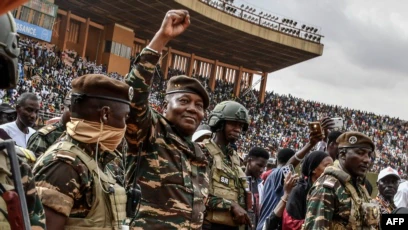Niger is taking a crucial step towards a democratic transition, with a national convention set to take place from February 15-19.
The convention aims to create a transition charter, determining the timeline and governance priorities for the country’s return to democracy.
This development comes after General Abdourahamane Tchiani, the head of the military regime, initially committed to a three-year transition period following the July 2023 coup that ousted President Mohamed Bazoum. However, months of silence on the issue fueled uncertainty among Nigeriens and international observers.
Ibrahim Faruk, program coordinator for the African division at Yiaga Africa, views the convention as a positive step. “This signals the beginning of the timeline for a transition to a democratically elected government in the Republic of Niger,” he said. Faruk emphasized that democratic stability in West Africa has a ripple effect, and Niger’s transition could set an example for other countries in the region, such as Mali and Burkina Faso.
Ahead of the convention, authorities held consultations across Niger’s eight regions and formed a national commission to oversee the dialogue. The commission is expected to submit a final report to Tchiani within three weeks.
Niger’s political crisis reflects a broader trend in the Sahel, where military takeovers have become more frequent amid escalating jihadist threats and growing resentment toward civilian governments. While critics warn that prolonged military rule remains a possibility, the convention represents a significant step towards a democratic transition in Niger.









